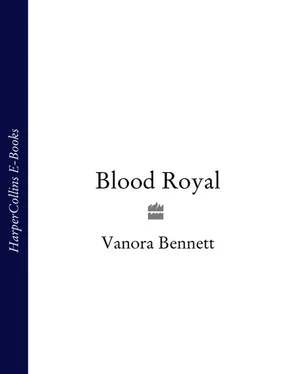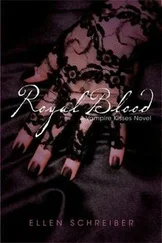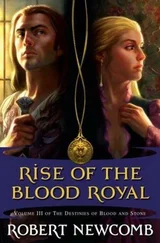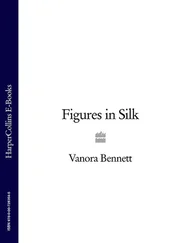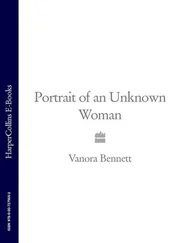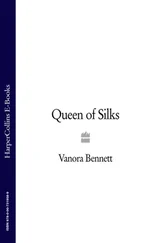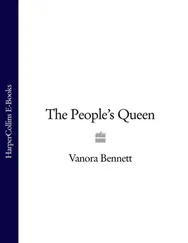Owain nodded, feeling he was beginning to understand. He’d heard about the troubles in France. He knew what Englishmen knew: that since the King of France was too mad, most of the time, to make decisions, the royal uncles and cousins were all wrangling for the chance to power as regent in his ‘absences’, and France had fallen into something like civil war as a result. The Queen and the various quarrelsome princes were almost all on one side, more or less, with their armies, usually led by the Count of Armagnac – and they were all against the Duke of Burgundy. Burgundy was the most powerful nobleman in France – rich, with lands all over north-eastern France and across the Low Countries, and expanding his territory still further in every direction as fast as he could. He was the only Prince whom the people of Paris loved, because they found him reliable. He might be too fond of plotting, but at least he paid his tradesmen’s bills. But he’d overstretched himself last year. He’d been blamed for stirring up riots in Paris against the King’s government, and had taken himself prudently off to his lands when the rioting had petered out. No wonder this family was so gloomy, if their breadwinner had been employed by Burgundy; if, now Jean had lost his patron, they were consumed with money worries …
Owain turned sympathetically to Christine, seeing lines round her eyes and mouth etched by hardship. Riots, civil war, fear, money problems, a son needing a patron; this was a story he suddenly felt he understood. It must be a constant worry for a widow in her sunset years, he thought. ‘It must be very frightening for you, sitting at home with the grandchildren … with nothing to do but wonder how your son’s faring …’ he ventured kindly.
He sensed, rather than heard, the indrawn breaths; felt the silence. He’d said something wrong again.
He didn’t dare look at Madame de Pizan’s face. He could hardly bear the outrage in her voice as she replied, in freezing tones, ‘ Well! I do my best to keep busy. In my humble way. I, Christine de Pizan.’
He fixed his eyes on Jean instead. He saw Jean glance at his mother; he saw the expression of wry amusement on the older man’s face, and realised, feeling mortified, though less full of dread than he’d been a second ago, that Jean was enjoying what must be a look of the purest fury from Madame de Pizan.
‘Young man, there’s something you should know …’ Jean said, quite kindly. ‘I could see you didn’t recognise her name when we introduced ourselves out there, but my mother is a very famous woman. She’s written dozens of books, on everything from love to military history. Kings come to her for guidance; dukes seek her advice. Even your King – well, his father – once tried to tempt her to live at the English court. She brought me and my sister up, after our father died, on the money she earned from writing poems; she’s taken on the greatest minds in Europe to teach them the dignity of women. She’s unique; known all over Christendom; an ornament to the civilised world. Also, she has a very short temper. You should know all that before you go on.’
He paused. He gave Owain a quizzical look, as if waiting to see how he’d react. Owain could see Jehanette was trying not to laugh.
‘But,’ Owain faltered, hardly daring to speak for fear of falling into yet another trap he hadn’t suspected. He’d never heard of such a thing. ‘A woman …? Educated …? Writing …? What …?’
Christine snapped: ‘A woman can educate herself, if she has the wit and application to. I did; why not?’ Then, less angrily, ‘In any case, if this was a just world, all girls would automatically be properly educated, without having to teach themselves – just as boys are. So, no, I don’t just sit at home worrying. You have to help yourself in this life; there’s no guarantee anyone else will help you if you don’t. I go to court. I get commissions. I write: I, Christine . What’s more, I run a manuscript workshop out at the back here, to have my work copied and presented to clients. I don’t have time to sit around being frightened. And let me tell you one last thing, young man,’ she added, with her eyes still full of flash and injured pride, but also, Owain suddenly realised, just the faintest glimmer of dawning humour. ‘My most talented employee, by a long chalk – the best illuminator of manuscripts in Paris, and probably in the world – is a woman too.’
Owain opened his eyes very wide – even wider than the astonishment he genuinely felt was merited. It had taken a while, but now instinct told him he might have the measure of her at last. To be impressed would appease her. If he could only appeal to the humour he sensed in her eyes; to the good heart that he sensed lay behind her fierce exterior …
He opened his hands wide, too, in an imitation of the French shrug he’d seen so often today.
‘They told me’, he said, with all the worldly charm he could muster, staring back at her as boldly as he dared, ‘that Paris was a city of miracles. And now I know they were right.’
He bowed. ‘Bravo!’ he heard Jehanette whisper.
‘Madame de Pizan,’ he went on, in the same light, unfrightened tone – the words coming glibly to his tongue now he was finding his way; knowing he was on safer ground. ‘I’m honoured to know you. And I beg your pardon for my ignorance. Truly. I didn’t mean to give offence … but I wasn’t to know … there are no women with your genius in my country … and I’m not a man of letters myself … I’ve never read … well, not properly … only the Bible, and my Book of Hours …’
He could see, from the little nods of Jean’s head, that he was doing all right now. And, as his panic receded, he remembered that he had always wanted to know more about the world of letters. He’d always been intrigued by the priestly scholars in the castles he’d moved between since he came to England; by their austere, dusty calling; but repelled, too, by their elderly, glum faces. He’d always wished they had some of the life and lightness of Red Iolo, Owain Glynd?r’s bard, who in spite of being unimaginably ancient – more than eighty, people said – with a white beard and a bowed back and a stick, and white-blue cloudy eyes, still had an amused smile and a joyful wit and a poem always on his tongue. Not that it mattered, back in England. As a Welshman, one of the Plant Owain – the Children of Owain – he was banned from university anyway. He didn’t care. But here, in this great city, home of the greatest university in Christendom, every young man was reputed to know his astronomy and even the women were scholars … There’d be no sour old faces here; it might all be different.
‘I’d like to read more widely,’ he added eagerly, for Owain was a young man of irrepressible optimism and adaptability, ‘I’d really like to. If I’m to stay with you while my Duke’s embassy is here, will you show me your books?’
When he dared look up into the next silence, he saw everything had changed. Christine de Pizan was smiling at him – a smile so dazzlingly beautiful that, for a moment, he could no longer see the lines etched on her face by time. And she was nodding her head.
They sat up late, after that. They drank another pitcher of wine together (Owain was wise enough not to water his any more). He didn’t know whether he was drunk. He only knew he was overwhelmed with the excitement of this adventure: with being in this extraordinary city, developing a camaraderie with a woman so learned she was the talk of Christendom, and knowing that his refusal to give in to his fear of her had helped make her eyes go soft and her voice gentle as she talked.
Christine was telling him about coming to Paris for the first time herself. Her father had been a Venetian; he’d brought her to Paris when she was four and he had been appointed as the astrologer to the old French King’s court. She still remembered her first sight of Paris’s four bridges and the hundreds of princely hotels in the town along the Seine’s right bank; the glittering pinnacles of palace and cathedral in the city, on the Island in the middle of the river, and the sweeping vineyards, cornfields, churches and colleges of the university districts on the Left Bank. ‘And the King’s library …’ she reminisced, with a soft look in her eye, ‘… a thousand books, each more beautiful than the last … and the graciousness of the King himself … a true philosopher-king … So I understood your astonishment when you saw the city spread out before you this evening. I remember that moment myself. Paris is the most beautiful city in the world … and always will be.’
Читать дальше
